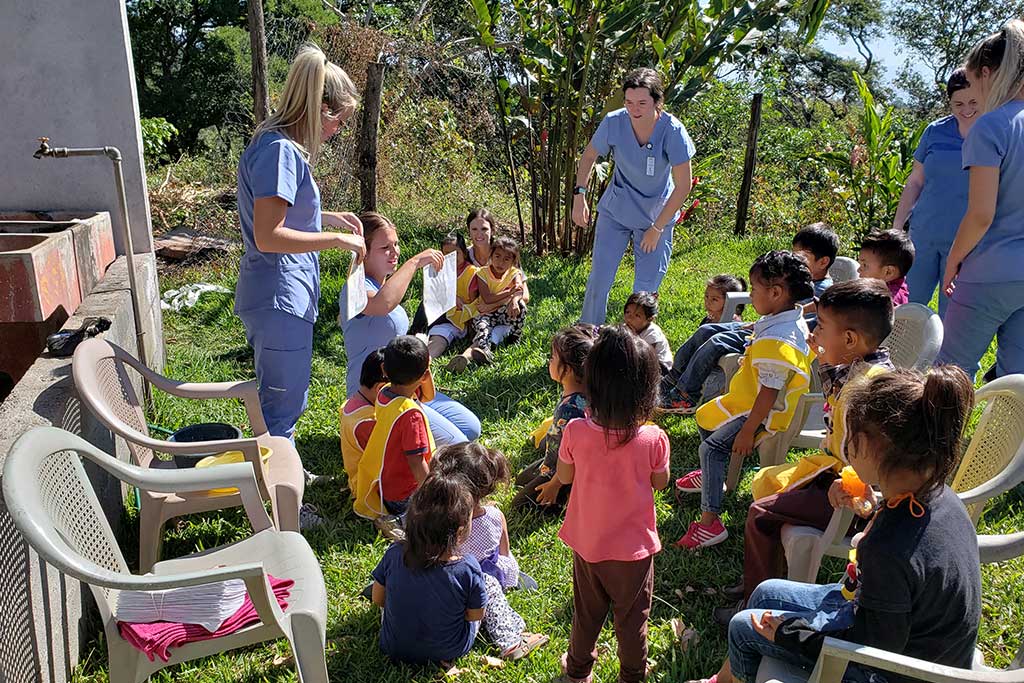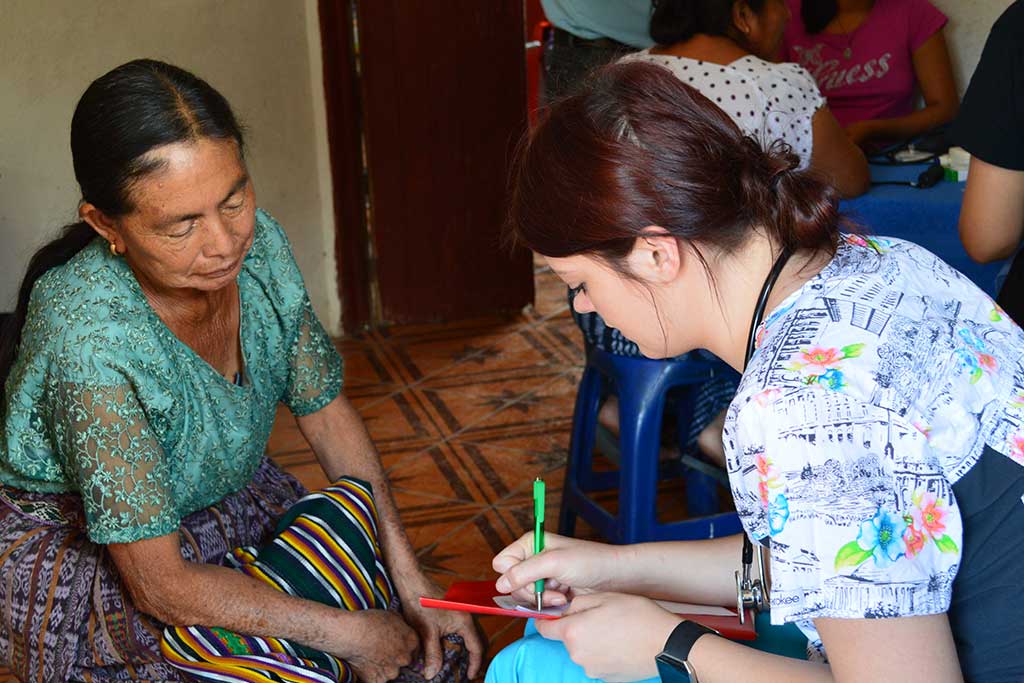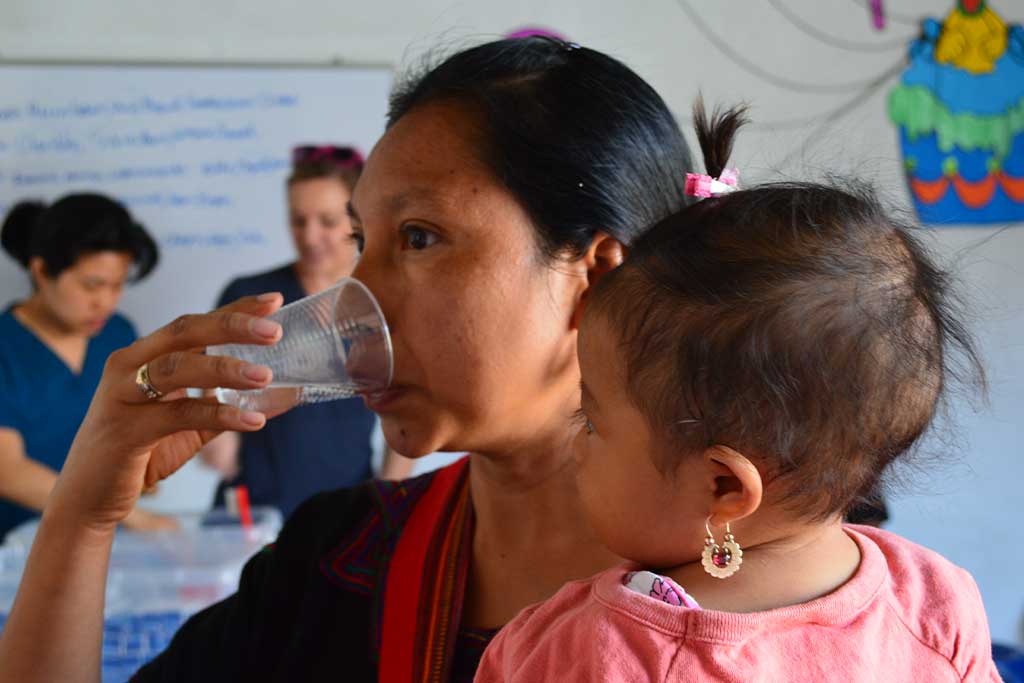Everyone deserves access to healthcare, but not everyone gets it. There is a distressing disparity in the standard of living for citizens of different countries and the classes within them. In many developing countries, large fractions of the population go without basic medical attention.
Like Maslow’s hierarchy demonstrates, it’s difficult to grow as an individual or concern yourself with matters of love and interest when your basic needs aren’t being met. While some people are worrying about trivialities like highlights and manicures, others are living in constant uncertainty and discomfort.
And while it is unrealistic to believe that one medical volunteer trip could fundamentally change the fabric of a country, it could make a difference in small ways. Comforts that you might take for granted, like vitamins and antiparasitics, could positively impact day-to-day life in remote communities.

So even though there is skepticism surrounding the effectiveness of short-term volunteering, I knew I wanted to try it for myself. Doubters might argue that service work abroad does far more for the conscience of the participating travelers than for the future of the community itself. And in some cases, I’m sure this is true.
However, I was particularly attracted to the idea of a medical mission trip because of the practical impact it would have. Visiting villages to pass out medical supplies and lead educational workshops may not change a country’s healthcare system, but it does give locals tools to live longer and healthier lives.
Studying Abroad During Pre-Med
This desire to be part of a project offering practical aid is what led me to sign up for a medical mission trip through my university. Even though we only spent a week in Guatemala, I learned a lot and felt it was the perfect opportunity for someone like me. As a pre-med student, it’s difficult to find time to study abroad.

Your coursework tends to be pretty much predetermined if you plan to graduate on time. Because of this, I had never felt like a semester abroad was an option for me. I would have liked to experience a new culture, learn another language. I just didn’t have much room left over for electives.
So by joining a small cohort of other pre-med students under the supervision of two of our professors, I was able to experience another culture without derailing my studies. Because it was a medical service trip, I also felt like I was contributing positively to the community.
Our Medical Campaign in Guatemala
Maximo Nivel helped our university group coordinate our trip to Guatemala. We all stayed with host families in Antigua, a short drive from the airport in Guatemala City. I enjoyed practicing my limited Spanish at the dinner table and getting to try some authentic home cooking.
During the day, however, we were not working in Antigua. Each morning we were driven to a low-income community no more than two hours away. I felt really lucky both to be seeing parts of the country that a typical tourist wouldn’t and to reach patients that wouldn’t otherwise have access to healthcare.
Had I gone to Guatemala (or any country for that matter) on my own and tried to volunteer locally, I know I wouldn’t have had any of the same connections. Maximo took care of all the bureaucracy. Our team didn’t have to worry about paperwork, transportation, translators or medical supplies.
Every day, I felt like I was part of something that would actually leave a positive impact. In each underserved community we visited, we set up a few stations to try and meet the needs of as many people as possible. My roles varied from day to day, and I got to learn a lot in spite of the language barrier!

Because there weren’t medical buildings waiting for us, we traveled with all of our supplies. Our outreach included educating communities about hygiene practices that would help protect their health over time. We also handed out dental kits and treated some patients for parasitic infections.
I’m not a doctor yet, so I mainly assisted by distributing supplies, giving educational demonstrations and helping direct community members. We were also traveling with a local doctor, however, in addition to the professors leading our service trip, so they were able to address specific concerns.
The doctors had informal appointments with patients that were experiencing health problems. And though we obviously couldn’t bring a lot of medical technology with us, many community members walked away with medications to treat infections or chronic pain.
Reflecting As We Flew Away
There are so many aspects of healthcare that I assumed were “easy fixes” before coming on this medical mission trip. Small issues like an infected cut or poor dental hygiene can become legitimate medical concerns when left unattended.

And it is so unfair that easily treated health issues sometimes become fatal when people can’t find and/or afford the care that they so desperately need. Even in wealthier areas of Guatemala, locals probably don’t stop to appreciate how simple it is to buy the antibiotics or ibuprofen they’re looking for.
That’s why I was especially grateful to serve in more remote communities where the need was greater. Because though I know that I cannot change the inequities in Guatemala, Central America or the world at large, I can lend a helping hand. It’s amazing what you can see and do in a week!
